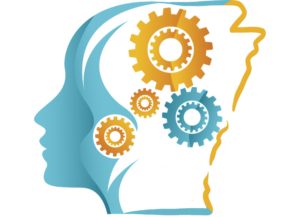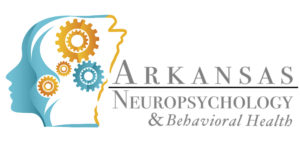Board Certification in Professional Psychology: Promoting Competency and Consumer Protection
Advocacy to Advance the Science and Practice of Neuropsychology
For more: http://www.tandfonline.com/doi/full/10.1080/13854040902802947
Abstract
Board certification in psychology provides an opportunity for increased assessment of and demonstration of competence in the profession. In addition to serving as a means of consumer protection, it can serve the professional psychologist by providing the opportunity for increased income, professional satisfaction, facilitated mobility, and professional development. Jurisdictional and organizational recognition of the importance of board certification is increasing. This article uses the model and experience of the American Board of Professional Psychology, with particular attention to the American Board of Clinical Neuropsychology and the American Academy of Clinical Neuropsychology, to illustrate these benefits. Recent developments regarding board certification are described, as well as how to become involved in the process.
Introduction
Competency, and the assessment thereof, has been the focus of several psychological organizations as well as national and international conferences in recent years. Board certification through ABPP has historically been one method of measuring competency in professional psychology. As the field continues to mature, the conceptualization and measurement of competency is an ongoing and evolving process. The ABPP specialty board in neuropsychology is the American Board of Clinical Neuropsychology (ABCN). This article is intended—by way of using the ABPP and ABCN boards as illustrative—to present board certification as a natural stage of professional development for the individual psychologist and the profession as a whole. Psychology is becoming more specialized. Board certification is a mechanism for defining and measuring competency. Board certification is beneficial for the profession, individual psychologists, and the consumers of psychological services.
The American Board of Professional Psychology (ABPP), established in 1947 through sponsorship of the American Psychological Association (APA), provides board certification through credentials review and competency-based examination processes for psychologists in multiple specialty areas within psychology, including clinical neuropsychology. The purpose and process of board certification through ABPP is reviewed here, as well as recent developments in the area of credentialing and board certification of psychologists and the benefits thereof.
As psychology has grown, efforts to regulate the profession and provide for consumer protection have led to the establishment of licensure, which in most jurisdictions is generic in nature. In most of the jurisdictions within North America licensure is based on assessment of knowledge (as opposed to competency) through the Examination for Professional Practice in Psychology (EPPP), is generic, and does not identify a specialtyarea of practice, much less provide for assessment of competence within that area.
As areas of specialty have emerged, professionals and consumers have sought to be better able to identify competent psychologists within specialty areas. Rodolfa et al. (2005) identify public accountability and a public demand for identification of specialty competence as fundamental reasons for the need to define competency and specialty. Psychological specialty practice has been defined by the APA (1995), the Council of Specialties in Professional Psychology (CoS), and ABPP, yet only ABPP (as the only credentialing body among them) uses the term competency in its definition (Rodolfa et al.).
Competence is often a core expectation within a profession. Many professions (among them medicine, law, psychology) have established methods to recognize competence. The APA Ethical Principles of Psychologists and Code of Conduct (2002) addresses consumer protection and states one should practice within one’s area of competence.
Board certification is an outgrowth of this attention to competency and consumer protection. It serves as one method for addressing competency to provide services in a specialty area. As a way of serving the public and the profession, one of ABPP’s primary purposes is certifying specialists through competency-based examinations.
Recent developments related to board certification
Board certification developments are ongoing that affect individual psychologists, the profession of psychology, and the general consumer public. Recent developments include implicit encouragement to become board certified (e.g., salary increases for ABPP board certified psychologists), limitations on who can describe themselves as board certified, and consideration of the issues around licensure and board certification (e.g., ASPPB).
Department of Veteran’s Affairs recognition
The Department of Veteran’s Affairs has recently enacted policy that provides for potential salary increases based on a psychologist becoming board certified through ABPP. The Special Advancement for Achievement criteria of the Hybrid Title 38 within the DVA allows for a one step increase within GS level for becoming ABPP (it also permits that increase for existing ABPP specialists as the program initiates).
US Department of Defense recognition
On October 14, 2008, President Bush signed into law Senate Bill 3001, the ‘‘Duncan Hunter National Defense Authorization Act for Fiscal Year 2009”. This legislation, recognizing a need for competent and qualified psychologists within the US Armed Forces, approved a significant accession bonus (up to $400,000 payable in increments of up to $100,000 per year over 4 years) for psychologists targeting for employment those who are board certified through the American Board of Professional Psychology.
Florida Legislation and Board of Psychology rules/regulations
The State of Florida recently enacted limitations on when a psychologist can identify themselves as board certified. The legislative language of F.S. 490.0149 is provided in Table 1; the Board of Psychology rule languageis in Table 2. The legislative language has direct impact on individual psychologists, whereas the board rule has direct impact on credentialing organizations.
Original: http://www.tandfonline.com/doi/full/10.1080/13854040902802947

